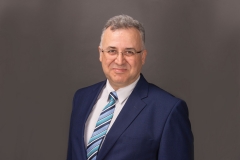
FACULTY OF ARTS AND SCIENCES
Department of Physics
GEIN 310 | Course Introduction and Application Information
| Course Name |
Innovation in Technology
|
|
Code
|
Semester
|
Theory
(hour/week) |
Application/Lab
(hour/week) |
Local Credits
|
ECTS
|
|
GEIN 310
|
Fall/Spring
|
3
|
0
|
3
|
5
|
| Prerequisites |
None
|
|||||
| Course Language |
English
|
|||||
| Course Type |
Service Course
|
|||||
| Course Level |
First Cycle
|
|||||
| Mode of Delivery | - | |||||
| Teaching Methods and Techniques of the Course | - | |||||
| Course Coordinator | ||||||
| Course Lecturer(s) | ||||||
| Assistant(s) | - | |||||
| Course Objectives | At the end of the course students will have knowledge about; concepts about innovation and technology, innovation process, product development, the steps to transfer different technologies to commercial area. |
| Learning Outcomes |
The students who succeeded in this course;
|
| Course Description | Provide information on innovation and technology, innovation process, analyzing successful innovations, types of innovation, product development, translation of innovation and effective presentation |
|
|
Core Courses | |
| Major Area Courses | ||
| Supportive Courses | ||
| Media and Management Skills Courses | ||
| Transferable Skill Courses |
WEEKLY SUBJECTS AND RELATED PREPARATION STUDIES
| Week | Subjects | Related Preparation |
| 1 | Introduction to innovation and technology | |
| 2 | Innovation Process, developing creative ideas, creative problem techniques | Shane, Scott. ‘Handbook of Technology and Innovation Management’, 2008, John Wiley and Sons Inc, West Sussex,England Part II Jan Fagerberg, David C. Mowery, and Richard R. Nelson, 2005, The Oxford Handbook of Innovation, Oxford University Press Chapter 4 |
| 3 | The Evolution of Technology, Markets, and Industry | Shane, Scott. ‘Handbook of Technology and Innovation Management’, 2008, John Wiley and Sons Inc,West Sussex,England Chapter 1 |
| 4 | The Development and Introduction of New Products | Shane, Scott. ‘Handbook of Technology and Innovation Management’, 2008, John Wiley and Sons Inc, West Sussex,England Part II |
| 5 | Market research (primary, secondary) and potential customer research | Shane, Scott. ‘Handbook of Technology and Innovation Management’, 2008, John Wiley and Sons Inc, West Sussex,England Part II Mullins, John, 2008, “The New Business Road Test”, Pearson Education Ltd. , Harlow Part 1 |
| 6 | The Management and Organization of Innovation | Shane, Scott. ‘Handbook of Technology and Innovation Management’, 2008, John Wiley and Sons Inc, West Sussex,England Part III Jan Fagerberg, David C. Mowery, and Richard R. Nelson, 2005, The Oxford Handbook of Innovation, Oxford University Press Chapter 5 |
| 7 | Innovation and entrepreneurship, Business model concept, analyzing and application of different business models | Shane, Scott. ‘Handbook of Technology and Innovation Management’, 2008, John Wiley and Sons Inc, West Sussex,England Part IV Alex Osterwalder, 2010, “Business Model Generations”, John Wiley and Sons Inc., New Jersey Chapter 1 |
| 8 | Business models, elevator pitch, action planning | Alex Osterwalder, 2010, “Business Model Generations”, John Wiley and Sons Inc., New Jersey Chapter 1 |
| 9 | Innovation and Intellectual Property | Shane, Scott. ‘Handbook of Technology and Innovation Management’, 2008, John Wiley and Sons Inc, West Sussex,England Chapter 10 Jan Fagerberg, David C. Mowery, and Richard R. Nelson, 2005, The Oxford Handbook of Innovation, Oxford University Press Chapter 10 |
| 10 | Finance and Innovation | Shane, Scott,‘Handbook of Technology and Innovation Management’, 2008, John Wiley and Sons Inc,West Sussex,England PartV Jan Fagerberg, David C. Mowery, and Richard R. Nelson, 2005, The Oxford Handbook of Innovation, Oxford University Press Chapter 9 |
| 11 | Individual Collaborations, Strategic Alliances, Competition and Innovation | Mullins, John, 2008, “The New Business Road Test”, Pearson Education Ltd. , Harlow Part 1 Shane, Scott,‘Handbook of Technology and Innovation Management’, 2008, John Wiley and Sons Inc,West Sussex,England Part IV |
| 12 | Effective presentation techniques | |
| 13 | Presentations | |
| 14 | Presentations | |
| 15 | Review | |
| 16 | Review |
| Course Notes/Textbooks | |
| Suggested Readings/Materials | Kawasaki, Guy, 2004, “ The Art of the Start “, Penguin Group, USA Richards, Doug, 2013, “How to Start A Creative Business”, David&Charles Alex Osterwalder, 2010, “Business Model Generations”, John Wiley and Sons Inc., New Jersey Mullins, John, 2008, “The New Business Road Test”, Pearson Education Ltd. , Harlow Shane, Scott. ‘Handbook of Technology and Innovation Management’, 2008, John Wiley and Sons Inc, West Sussex,England Jan Fagerberg, David C. Mowery, and Richard R. Nelson, 2005, The Oxford Handbook of Innovation, Oxford University Press |
EVALUATION SYSTEM
| Semester Activities | Number | Weigthing |
| Participation | ||
| Laboratory / Application | ||
| Field Work | ||
| Quizzes / Studio Critiques | ||
| Portfolio | ||
| Homework / Assignments |
1
|
20
|
| Presentation / Jury |
1
|
30
|
| Project |
1
|
30
|
| Seminar / Workshop |
1
|
20
|
| Oral Exams | ||
| Midterm | ||
| Final Exam | ||
| Total |
| Weighting of Semester Activities on the Final Grade |
4
|
100
|
| Weighting of End-of-Semester Activities on the Final Grade | ||
| Total |
ECTS / WORKLOAD TABLE
| Semester Activities | Number | Duration (Hours) | Workload |
|---|---|---|---|
| Theoretical Course Hours (Including exam week: 16 x total hours) |
16
|
3
|
48
|
| Laboratory / Application Hours (Including exam week: '.16.' x total hours) |
16
|
0
|
|
| Study Hours Out of Class |
1
|
20
|
20
|
| Field Work |
0
|
||
| Quizzes / Studio Critiques |
0
|
||
| Portfolio |
0
|
||
| Homework / Assignments |
1
|
22
|
22
|
| Presentation / Jury |
1
|
30
|
30
|
| Project |
1
|
30
|
30
|
| Seminar / Workshop |
0
|
||
| Oral Exam |
0
|
||
| Midterms |
0
|
||
| Final Exam |
0
|
||
| Total |
150
|
COURSE LEARNING OUTCOMES AND PROGRAM QUALIFICATIONS RELATIONSHIP
|
#
|
Program Competencies/Outcomes |
* Contribution Level
|
||||
|
1
|
2
|
3
|
4
|
5
|
||
| 1 | To be able master and use fundamental phenomenological and applied physical laws and applications, |
|||||
| 2 | To be able to identify the problems, analyze them and produce solutions based on scientific method, |
|||||
| 3 | To be able to collect necessary knowledge, able to model and self-improve in almost any area where physics is applicable and able to criticize and reestablish his/her developed models and solutions, |
|||||
| 4 | To be able to communicate his/her theoretical and technical knowledge both in detail to the experts and in a simple and understandable manner to the non-experts comfortably, |
|||||
| 5 | To be familiar with software used in area of physics extensively and able to actively use at least one of the advanced level programs in European Computer Usage License, |
|||||
| 6 | To be able to develop and apply projects in accordance with sensitivities of society and behave according to societies, scientific and ethical values in every stage of the project that he/she is part in, |
|||||
| 7 | To be able to evaluate every all stages effectively bestowed with universal knowledge and consciousness and has the necessary consciousness in the subject of quality governance, |
|||||
| 8 | To be able to master abstract ideas, to be able to connect with concreate events and carry out solutions, devising experiments and collecting data, to be able to analyze and comment the results, |
|||||
| 9 | To be able to refresh his/her gained knowledge and capabilities lifelong, have the consciousness to learn in his/her whole life, |
|||||
| 10 | To be able to conduct a study both solo and in a group, to be effective actively in every all stages of independent study, join in decision making stage, able to plan and conduct using time effectively. |
|||||
| 11 | To be able to collect data in the areas of Physics and communicate with colleagues in a foreign language ("European Language Portfolio Global Scale", Level B1). |
|||||
| 12 | To be able to speak a second foreign at a medium level of fluency efficiently |
|||||
| 13 | To be able to relate the knowledge accumulated throughout the human history to their field of expertise. |
|||||
*1 Lowest, 2 Low, 3 Average, 4 High, 5 Highest
NEWS |ALL NEWS
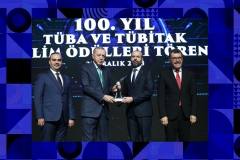
Four major awards in 5 years
Prof. Dr. Göktuğ Karpat, Faculty Member at Department of Physics, Faculty of Arts and Science, Izmir University of Economics (IUE) has been
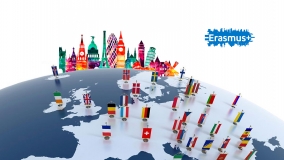
The Physics Department Erasmus Agreement
Dear Students of the Physics Department at Izmir University of Economics, We are pleased to share with you an exciting announcement! Our university
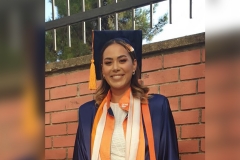
Loved physics, gave up her childhood dream
Senem Özdemir, who has been dreaming of becoming a pilot since childhood, graduated as the top student in the Department of Physics
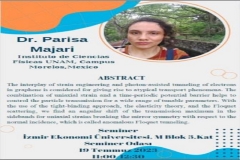
Scientific visit to the Department of Physics
Dr. Parisa Majari came to visit our Physics Department. Dr. Majari who studied with Prof. Dr. Gürsoy Bozkurt Akgüç gave a seminar
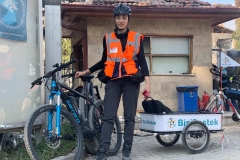
Ambassador of 'goodness'
Berfin Kolcu, a student of Izmir University of Economics (IUE) Department of Physics, went to Hatay, where thousands of people were under
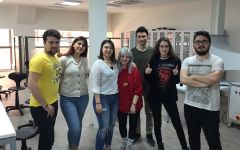
our student physics project at the finals
NEBULA rocket team, a branch of physics club established by our students is now at the finals after succesfully passing critical design


